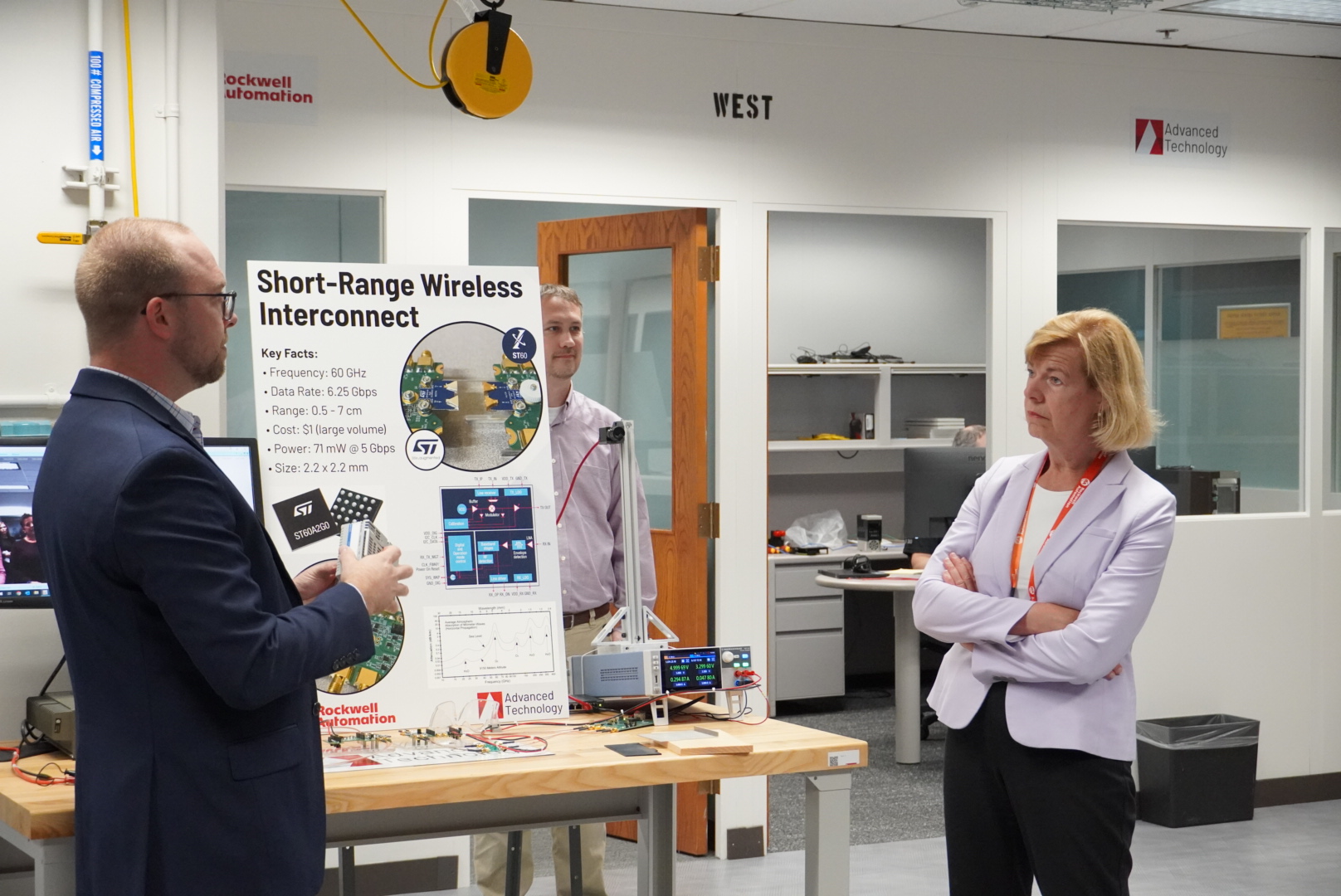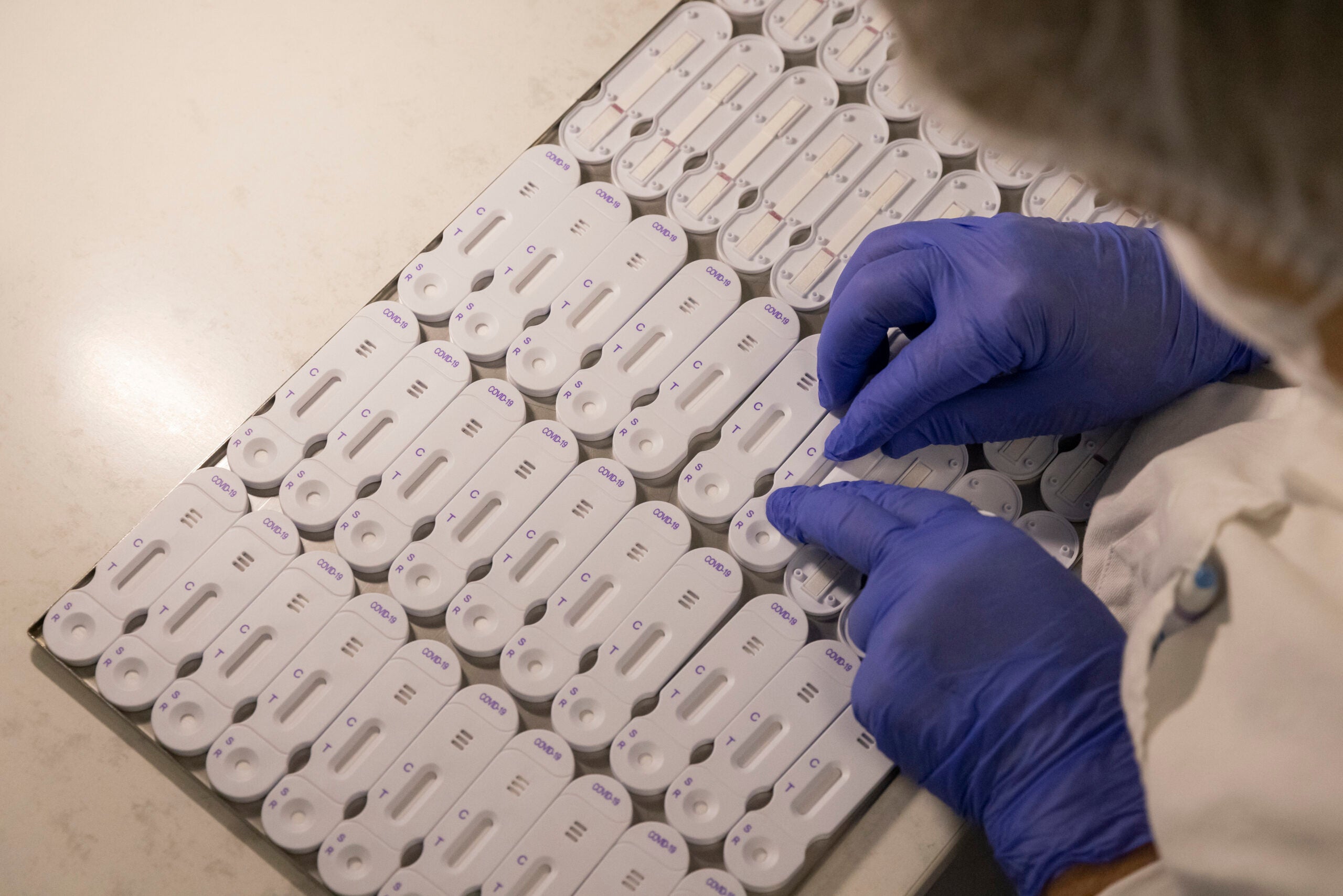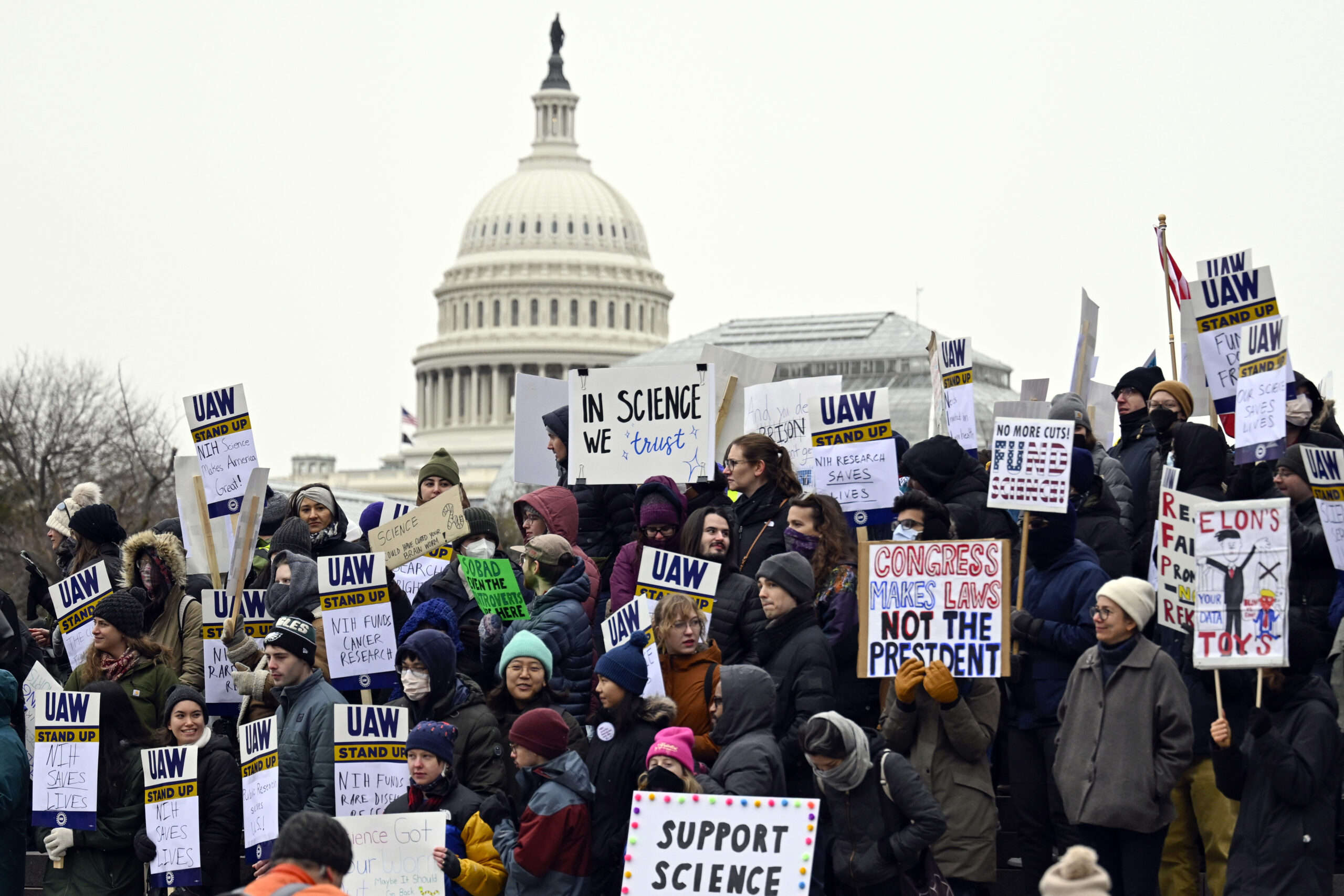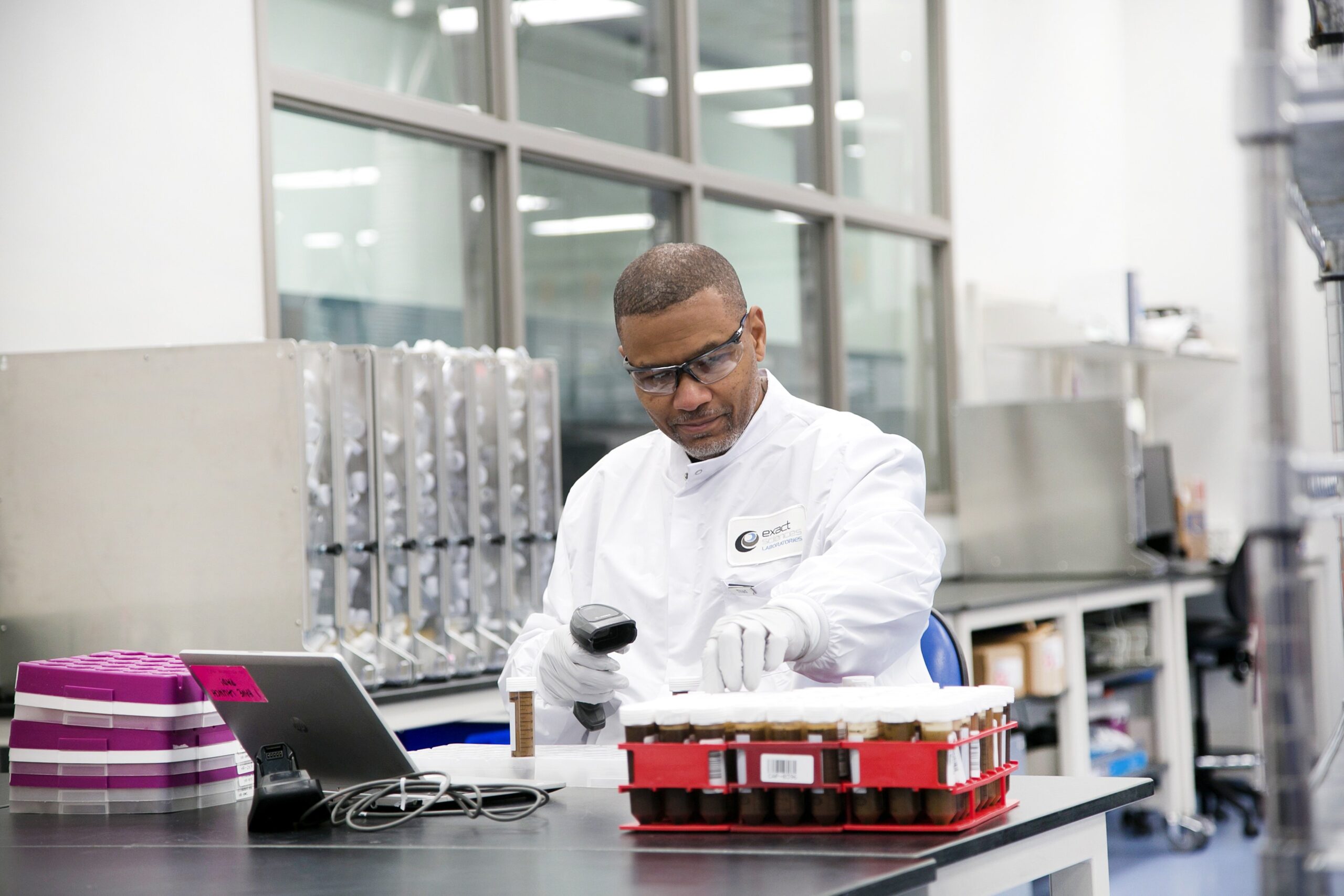Wisconsin’s federally-designated tech hub will receive nearly $50 million from the federal government to help the state’s growing biohealth sector continue to expand and innovate.
U.S. Sen. Tammy Baldwin announced the $49 million in federal grant funding on Tuesday. On a call with reporters Monday, she said the Badger State was selected from more than 192 initial applications, and is one of just 12 selected for a final tech hub designation and funding.
“In line with Wisconsin tradition, this tech hub will be innovative. It will be collaborative and it will move us forward,” Baldwin said. “Collaboration has really been the secret sauce that has made our bid for a tech hub successful.”
Stay informed on the latest news
Sign up for WPR’s email newsletter.
The Wisconsin Biohealth Tech Hub covers the Madison and Milwaukee areas. It received an initial federal designation from the Biden Administration in October 2023 after a consortium of 15 health technology companies, nonprofits and higher education institutions applied to the “Regional Tech Hub” program last fall.
The program was included in the CHIPS and Science Act of 2022, modeled off a Brookings Institution report that identified Wisconsin as a top destination for a regional tech hub.
The goal of the hub is to make the state a “global leader” in personalized medicine, a health care approach that uses a patient’s genetic sequence, medical record and environment for more efficient diagnostics and treatment.
“In Wisconsin, we make things and we have more iconic items — like beer, brats, motorcycles and cheese — but we also make people’s lives better,” Baldwin said. “This investment will move the needle for how we approach and give health care, helping people lead healthier lives.”
In addition to the federal funding, the state’s tech hub will receive $7.5 million in state funding and $24 million in industry commitments, according to BioForward Wisconsin, a trade association and the lead entity in the effort.
In a statement, Gov. Tony Evers said the tech hub, coupled with Microsoft’s planned $3.3 billion data center campus, help position the state as a national leader in “innovative industries” that are needed to meet the demands of the 21st century.
“I’m grateful to President Biden, U.S. Sen. Tammy Baldwin, and our federal partners for seeing the potential and promise in Wisconsin’s biotech industry and working tirelessly to help us secure these critical investments to accelerate research, grow our workforce and economy, and continue building a multi-billion-dollar industry that supports tens of thousands of jobs across our state,” Evers said.
From the other side of the political aisle, state Sen. Duey Stroebel, R-Cedarburg, and state Rep. Amanda Nedweski, R-Pleasant Prairie, authored the bill providing the $7.5 million in state funding. Both released statements Tuesday describing the federal award as a bipartisan win for Wisconsin.
“I am excited that Wisconsin workers will have the opportunity to gain advanced skills and evolve with this important sector of our economy,” Nedweski said.
Likewise, Stroebel called the tech hub a “a great opportunity that will help drive innovation and economic opportunity in our state for years to come.”
As of 2022, the biohealth industry in Wisconsin had a $32 billion economic impact and employed nearly 52,000 people, according to BioForward Wisconsin.

How will the funding be used?
Over its first decade, Wisconsin Economic Development Corp. Secretary Missy Hughes said the state’s tech hub will create an estimated 30,000 jobs in personalized medicine, 111,000 indirect jobs and $9 billion of economic development.
She also said jobs in the biohealth industry have an average salary of roughly $96,000, about 70 percent higher than the statewide average.
“The range of jobs that will be available will be very broad,” Hughes said. “We are going to provide the training to make sure that those in underrepresented, underserved communities have an opportunity to participate.”
One of the projects in the state’s funding proposal is developing the Wisconsin Health Data Hub, a network of health data that can be used by researchers to help discover new treatments. The federal funding will also support workforce development initiatives, like expanding certification programs, apprenticeships and skills training.
Other projects that will receive part of the federal funding include a mobile cancer screening effort in underserved communities and an effort to streamline the use of new technologies for cancer treatment and diagnosis.
In a statement, Jomol Mathew, associate dean for informatics and information technology at the University of Wisconsin-Madison, said the health data hub will help researchers pinpoint previously unknown risk factors for diseases.
“By tapping into the power of real-world health data and advanced analytics that the Wisconsin Health Data Hub will offer, researchers will be limited only by their ingenuity in terms of the questions they can ask to advance health,” Mathew said.
Lisa Johnson, chief executive officer of BioForward Wisconsin, said individual projects will be led by the various entities in the tech hub, but BioForward will oversee them.
She also said the federal funding is the culmination of “decades” of work to build the state’s biohealth industry.
“We’re just really proud to represent the United States in their mission to enhance national and economic security, and to deliver global competitiveness in the years to come,” she said. “It is really innovative what they have implemented with this tech hub approach. I think you’re gonna see countries elsewhere in the world trying to do the same thing that we’re doing here.”
Wisconsin Public Radio, © Copyright 2025, Board of Regents of the University of Wisconsin System and Wisconsin Educational Communications Board.





